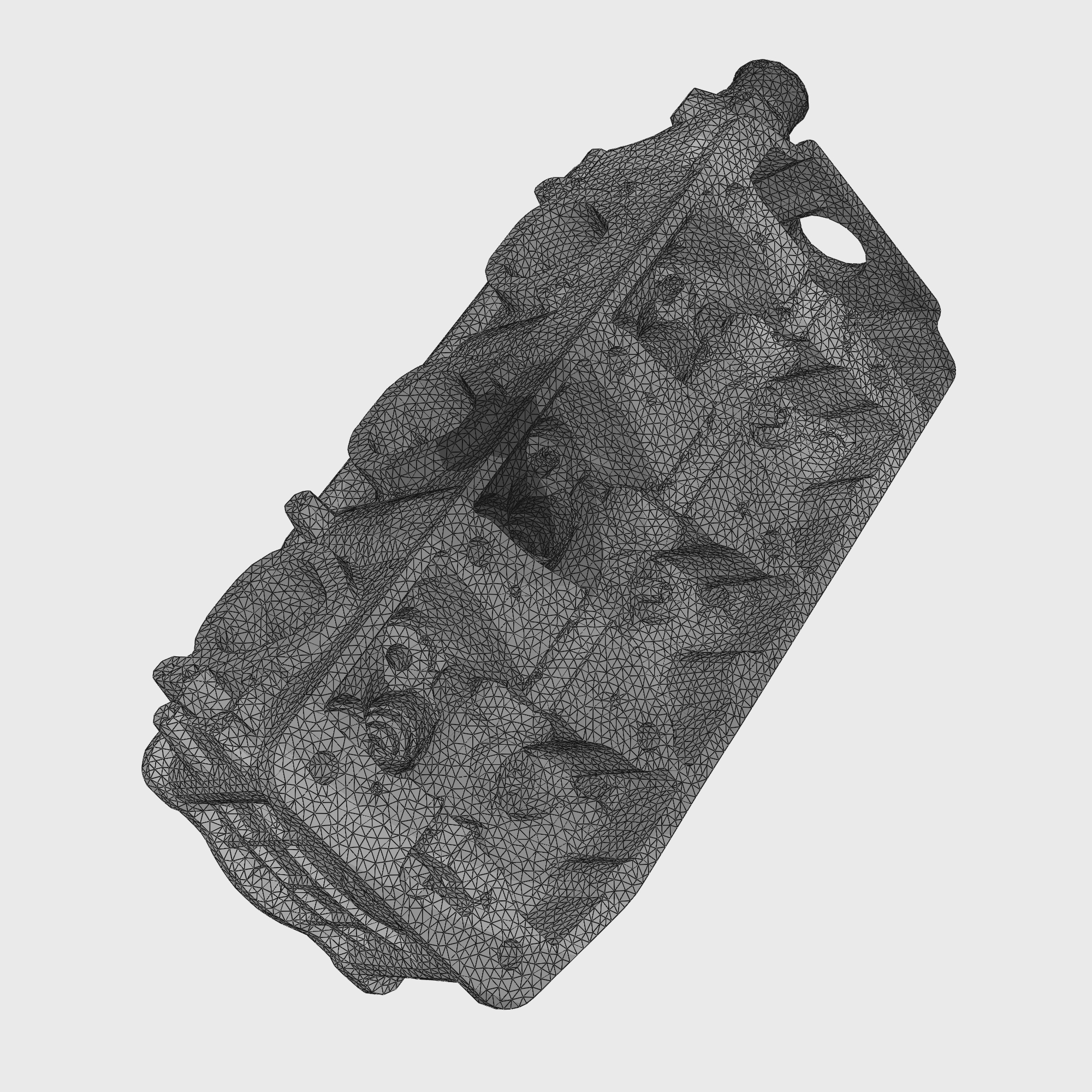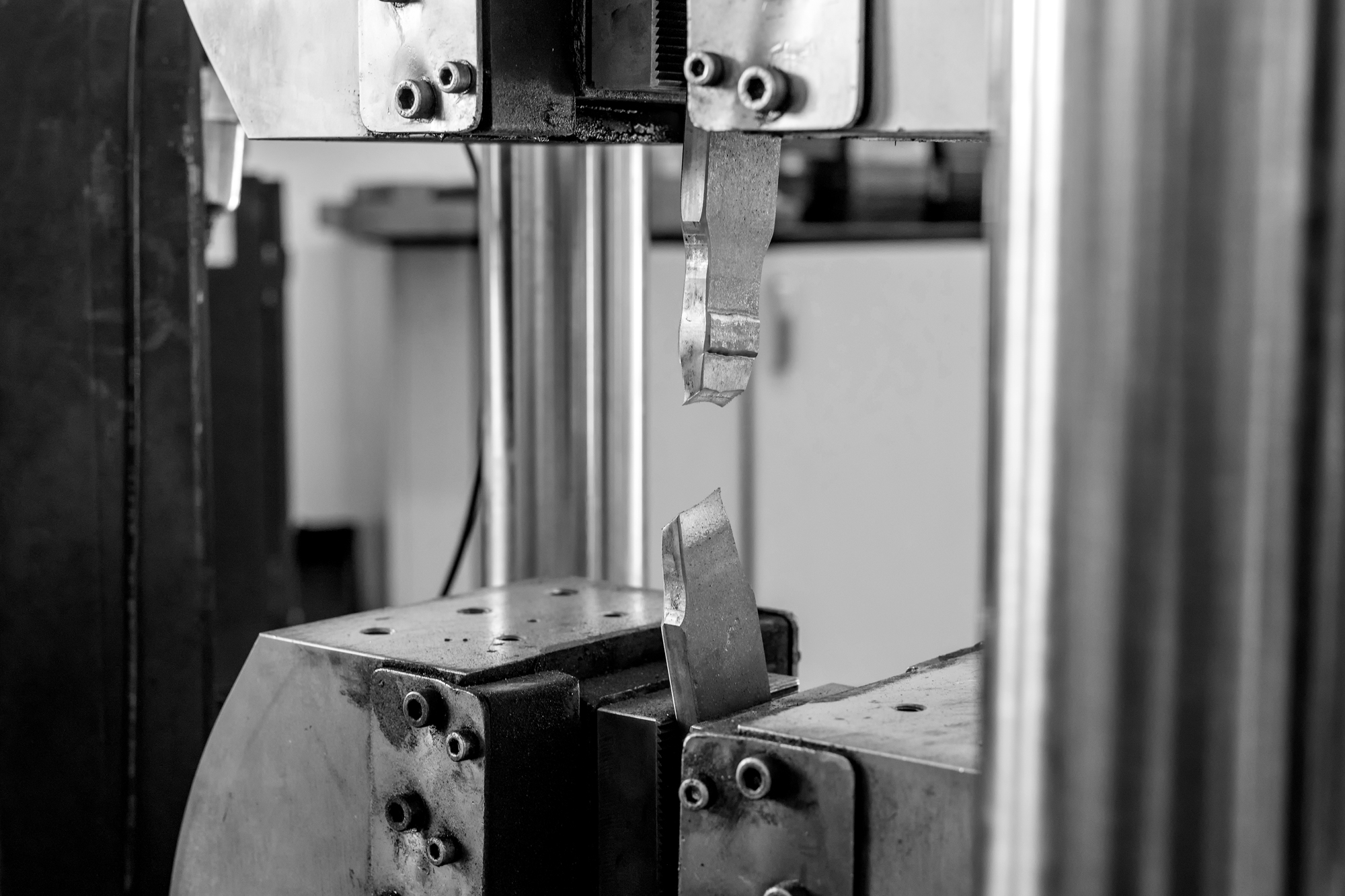FEM
consultancy
In recent decades, both industry and academia have experienced an exponential increase in the utilization of numerical simulation techniques. Finite element analysis (FEA) has long been adopted as a reliable engineering tool to design and optimize products in some industries, while other industries, such as civil engineering, are also starting to embrace this technique.
The growing acceptance of these techniques, along with the availability of suitable software and hardware, has led to an increase in the complexity of design problems. Today, we can offer simulations on large models with multiple complexities, such as material non-linearities, dynamical and impact loading, multi-part contact conditions, fatigue, and fracture. Our expertise includes a wide range of analysis, including static stress analysis, buckling and collapse analysis, modal and harmonic analysis, dynamic analysis, explicit analysis, spectrum analysis, contact analysis, and thermal analysis. We also specialize in modeling non-linear material behavior, including elastic iso-, ortho- or anisotropy, hyper- and viscoelasticity, plasticity, strain rate dependence, temperature dependence, creep, and more.
At our firm, we do not limit ourselves to the classical engineering materials and constructions made out of steel, aluminum, or concrete. We frequently work on projects dealing with composites, plastics, biomaterials, or 3D printed metals. Our expertise extends beyond traditional mechanical and civil engineering industries and into chemical and food industries, offshore, aerospace, rubbers and plastics industry, electronics, biomechanics, leisure industry, and many more.

Design
& engineering
Simulation techniques indeed offer many advantages in the design and engineering process of products and structures. One of the key benefits is the ability to identify and address potential flaws in the design at an early stage, before any actual construction of the prototype or final product is undertaken. This can save significant time and cost in the design process and reduce the risk of serious shortcomings in the final product. Additionally, virtual optimization of a product can result in cost savings by reducing over-dimensioning and material waste.
Although our main focus is on assisting product and structure design using numerical simulation methods, we can also provide support with conventional analytical techniques for component selection and dimensioning. Since our company's inception, we have completed over 2000 design, calculation, and validation projects across a broad range of industries, continuously building our expertise in the design process.

Material
& product testing
In addition to design and calculations, projects may also require material testing to provide input for simulations or to validate prototypes. To simplify the process for our customers, we offer these additional services as part of our package. This allows us to provide a comprehensive solution and increase overall project efficiency.
Our testing services include static tensile, compressive, and bending tests, as well as toughness and hardness tests, and fatigue testing with constant or variable amplitude loading. We also provide connection testing for welds, bolted, clinched, or riveted assemblies, as well as adhesive materials. Our team utilizes digital image correlation (DIC) and inverse methods for material identification, and strain measurements can be taken using strain gauges. Additionally, temperature measurements can be performed using thermocouples or cameras. Finally, we have the capability to manufacture custom-tailored setups for component and structure testing.
If you have specific testing needs or questions, please do not hesitate to contact us.

Customized software
& tools
In some industrial calculations, the process can be repetitive and time-consuming. For instance, determining the necessary ballast loads for a solar panel setup based on specific wind and snow loads can be a tedious process. To simplify and expedite these analytical or numerical calculations, we can develop dedicated software tools that allow for automated calculation without our assistance. These tools can range from basic Excel-like sheets to complex PC and web interfaces, tailored to suit individual needs.
We have experience in creating such software tools, including customized FE solvers with reporting modules, design calculation implementations according to standards, automated analysis and interpretation of experimental data, specific tools for interfacing with FE software, and optimization routines for designing structures. These tools help to reduce lead time and improve efficiency.

Mediation &
mentoring
At times, situations can go wrong, and we understand the importance of providing unbiased and motivated opinions to help resolve technical disputes. Due to our vast experience in designing and dimensioning products and structures, we are often consulted by courts or involved parties seeking an independent expert opinion in ongoing technical discussions. We have also acted as an independent party on behalf of disputing companies and insurance firms in several arbitration processes, leading to successful resolutions.
In addition to mediating, we offer mentoring services to assist companies in upgrading their knowledge and skills. Our services include independent analysis of technical problems or discussions, training on specialized topics tailored to your company's requirements, and assistance in certification processes with notified bodies. We also provide support in writing proposals for funding, which can be a daunting task for many companies.

Standards &
certification
Working according to international standards and guidelines is a crucial aspect of preparing products and structures for certification by notified bodies. Our company has gained extensive experience in this area over the years, having worked with a wide range of standards and guidelines in different industries. For civil engineering, we are familiar with Eurocodes, International Building Code (IBC), American ASCE, AISI, and ASTM standards, as well as national building codes. In mechanical engineering, we frequently use EN, ISO, or ASME standards, and specialist guidelines such as IIW, VDI, FKM, and others. In the offshore industry, DNV standards often govern the design, while for nuclear installations, we have worked with KTA. In summary, we have broad experience with European, US, ISO, and Chinese standards in various domains and countries.
In addition to our expertise in complying with these standards, we have been a subcontractor to TÜV Nord since 2013, which has given us experience with the certification process as a whole. This means that we can provide assistance in preparing complete documentation for certification purposes, not just limited to the design work and calculations. We can also take the lead in discussions with notified bodies to efficiently meet their expectations and avoid unnecessary work. Our goal is to help our clients achieve certification as quickly and smoothly as possible while ensuring that their products and structures are safe and reliable.
